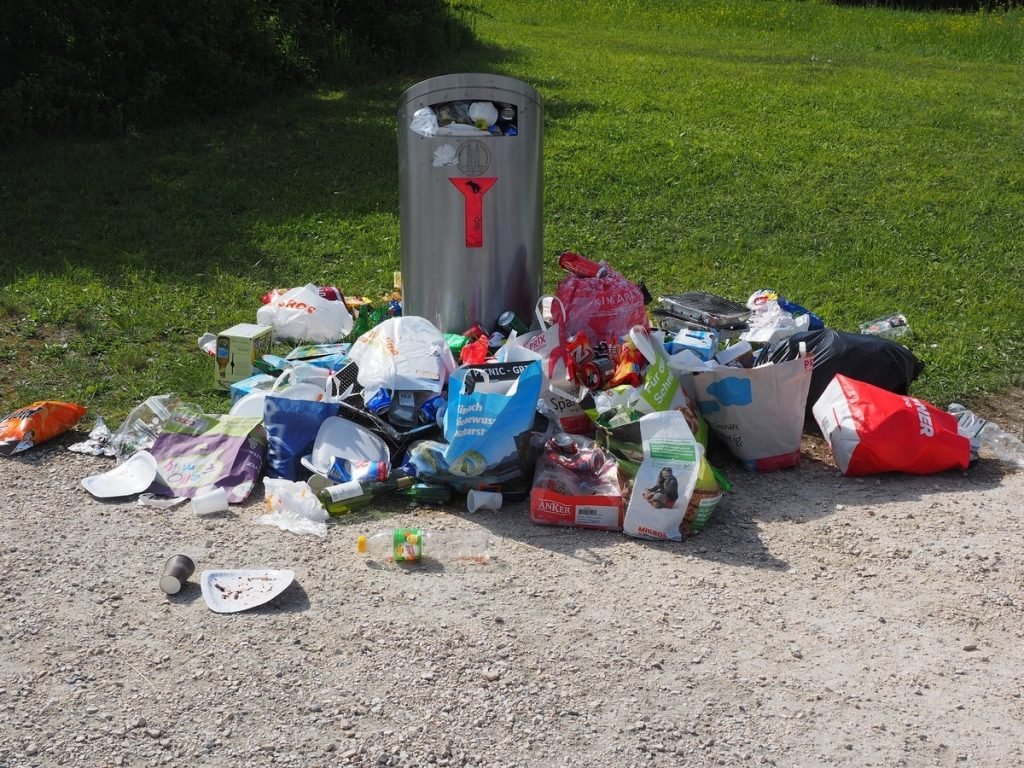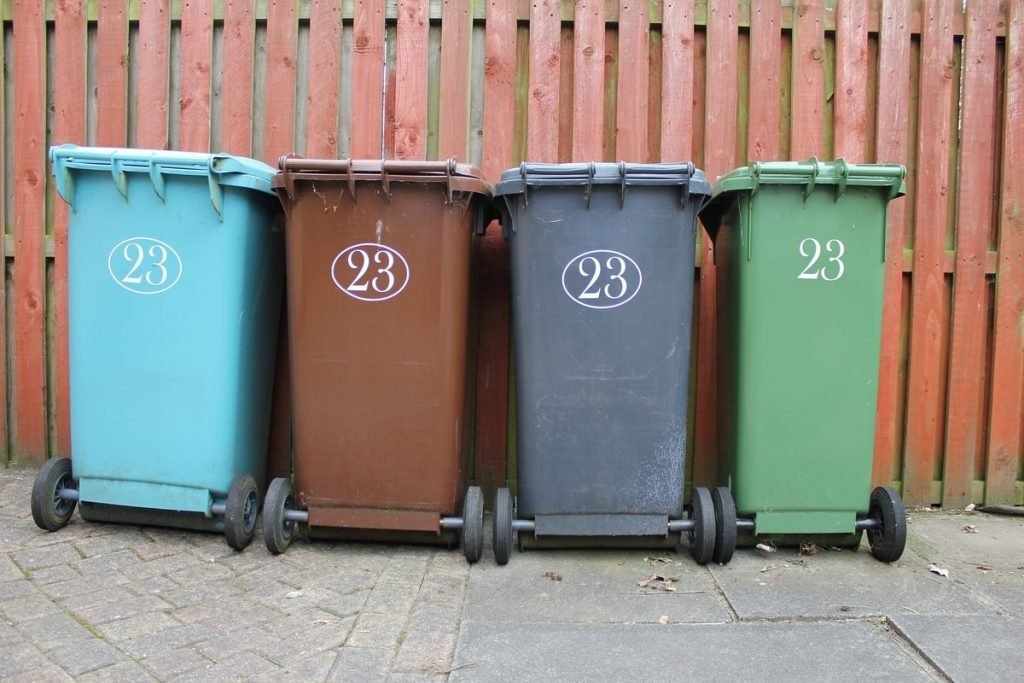Taking out the trash is one of the necessary evils in life. And when pests get into it, it can be a real disaster. Anything from bugs to bears can get into our waste and make a mess of things. Fortunately, though, we can take a few easy measures to minimize this risk.
None of these tips are mutually exclusive. It’s best to use several of them, depending on the type and severity of the problem you’re facing. You may have to experiment a bit to see what works for you, but one or more of these will help even if it doesn’t eliminate the problem.
Keep Trash Cans Clean
One of the simplest ways to keep pests away from your trash cans is by keeping them clean. The odors and whatever scraps may stick to the can will attract pests even when it’s empty.
Rinse the can with soapy water every few weeks to help eliminate the attraction. Most of the time, it’s enough to add a little dish detergent to the inside of an empty trash can, then spray it inside and out with a hose or pressure washer.
Turn the can over and let the inside dry before putting more trash into it.
Use Bags
Even if you meticulously clean your trash cans, it’s good to always bag your trash. This will contain the smells and cut down on the attractiveness of the waste.
Of course, bags also cut down on the amount of cleaning your cans will require since everything is contained. Sure, there may be spills. Bags may break sometimes. But it’s still far less than if you deposited everything directly in the can.
Repair Or Replace Damaged Cans
The combination of a can and a bag can minimize odors, but if the can is damaged, you lose a lot of protection. If your can has holes in it, bugs, rats, and mice will find their way in.
Trash cans take a beating – from the elements, from you, from the trash collectors. When you notice damage, you can try to repair it. If not, replace the can.
In the market for a new trash can? Here are some great choices!
Don’t Overfill
Another key to keeping pests out is closing the lid on your cans. That means you can’t overfill them. Be sure the lid can close tightly.

Be careful when pressing down trash to fit more in the can. It’s easy to forget what you’ve thrown away since the last trash day. There could be broken glass or other sharp objects inside.
Bungee Cords
Raccoons, bears, and dogs can open many types of lids, so you may have to find other ways to protect them.
“Bungee cords” – the versatile elastic straps used to hold many types of objects in place – are great with trash cans, too.
There are, of course, many products to lock trash cans that use the same basic principle. Some are sophisticated, interconnected cords. Others use a strap or cord attached to hooks that you permanently attach to the can.
As long as there are places to attach the hooks on either side of your can, you can place the strap over the lid and hook it in. This can help hold the lid in place even if the can is knocked over.
Make Them Hard To Tip
Of course, even a bungee cord or a lid that locks in place may come off if the trash can is tipped over. And larger animals like bears or dogs can easily do that. Even heavy winds might spill a can and the pests will arrive to take advantage of it.
A short wall alongside your cans can prevent them from tipping over. It doesn’t have to be anything complex; in fact, simple is better so that you can easily move the cans to the curb. But even a low fence can do the trick.
Enclose Them
If you don’t feel a short barrier is enough, you can keep your trash cans in an enclosed, gated space. The garage could work, but you might want them further outside.
A lattice-work or cyclone fence with a gate will deter most animals from getting to your cans.
Light It Up
Trash can raids by rodents or other animals often happen at night. Adding some light to the other could discourage these critters, especially if the light comes on suddenly.
Motion-activated lights are a good idea for home security and can spook pests, too.
Blinking Christmas lights might even work. Just put them on a timer to come on after dark.
Keep Food Waste In Your Refrigerator
If your organic waste isn’t outside to begin with, pests aren’t going to be attracted to your trash cans. Inside, though, it can stink up your house and lead pests to even worse places.
But if you keep food waste in a plastic bag in your freezer or refrigerator, it can go unnoticed by your annoying adversaries. But remember to put it out on trash day!

Rinse Out Bottles/Cans
Another way to eliminate attractions is to rinse food containers before throwing them away. Wash the “tasty” residue away before bagging up the wrapper, bottle, or can.
Ammonia, Bleach, Vinegar, Or Mothballs
Odors are what attract these pests – but smells can also keep them away. Raccoons and dogs, in particular, aren’t too receptive to the strong smells of ammonia, bleach, or vinegar. Mothballs (camphor) help against raccoons, too.
Sprinkle a little inside the trash can each week.
Petroleum Jelly
If crawling bugs like ants are the issue, petroleum jelly can be a big help. Rub a little around the lip of the trash can. Insects won’t want to try to walk through the gooey mess.
The drawback is that you have to constantly touch up the coating, but it does go a long way to keep these annoyances at bay.
Conclusion
One man’s trash is another . . . critter’s dinner. Your trash cans may attract pests, but you can also take some simple steps to keep them away. Using a combination of these tips can help spare you from the disaster of insects, rodents, and other scavengers making a mess of your trash!









